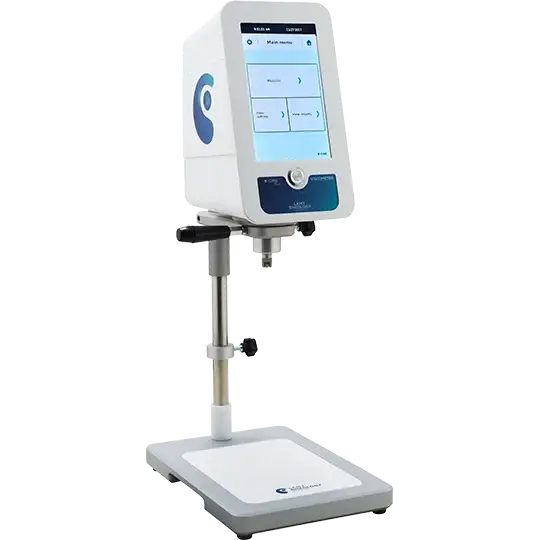LabroTek provides cutting-edge viscometers and rheometers that deliver exceptional accuracy and reliability for all your fluid property measurement needs. Our comprehensive range of instruments supports applications across research and development, manufacturing processes, and quality control operations.

Our viscosity measurement instruments provide reliable data on fluid flow properties:
For advanced rheological properties beyond simple viscosity:
Our specialists help you identify the ideal equipment for your specific applications and requirements
Professional setup and comprehensive operator training to ensure optimal performance from day one
Dedicated assistance throughout your equipment's service life, including troubleshooting and updates
Regular service programs to maintain accuracy, compliance, and maximize operational uptime
Our viscometers and rheometers represent the pinnacle of measurement technology, offering:
Precise measurements across a wide range of viscosities and fluid behaviors
Solutions for pharmaceuticals, food production, cosmetics, petroleum, coatings, and more
Intuitive interfaces that simplify complex testing procedures
Advanced software for comprehensive analysis and reporting
Meeting ISO, ASTM, DIN, and other global standards
A viscometer measures a fluid's resistance to flow (viscosity) under one flow condition, typically providing a single data point. A rheometer is more advanced and can measure multiple properties of a material, including viscosity, elasticity, and yield stress under varying conditions, providing comprehensive data about material behavior.
These instruments are essential in numerous industries including food and beverage, pharmaceuticals, cosmetics, paints and coatings, oil and petrochemicals, polymers and plastics, adhesives, and research and development laboratories. Any industry working with liquids, semi-solids, or soft solids benefits from viscosity and rheological measurements.
Choose a rotational viscometer for versatility and ease of use with medium to high viscosity fluids. These are ideal for quality control applications. Capillary viscometers are better suited for low viscosity Newtonian fluids and when high precision is required, especially in applications following specific standards like ASTM D445.
Regular maintenance includes cleaning measurement geometries after each use, calibrating the instrument periodically, checking temperature control systems, inspecting bearings and air bearings for wear, and conducting verification tests with standard oils. LabroTek offers comprehensive maintenance services to ensure your equipment maintains optimal performance.
Basic viscometers have limitations with non-Newtonian fluids as these materials change viscosity depending on shear rate. For accurate measurements of non-Newtonian fluids, rheometers are recommended as they can measure at different shear rates and provide a complete flow curve rather than a single viscosity value.
Modern rheometers from LabroTek's suppliers can typically operate in temperature ranges from -150°C to +600°C, depending on the model and accessories. Temperature control is crucial for accurate rheological measurements as most materials show significant viscosity changes with temperature variations.
Most manufacturers recommend calibration at least once every 12 months. However, for critical applications or intensive use, more frequent calibration (quarterly or biannually) may be necessary. LabroTek provides professional calibration services to ensure measurement accuracy and compliance with quality standards.
Oscillatory tests apply sinusoidal deformation to materials to measure viscoelastic properties. These tests are important because they help characterize both solid-like (elastic) and liquid-like (viscous) behavior of complex materials without disrupting their internal structure, providing insights into stability, processing behavior, and user experience.
Yes, LabroTek offers rental and leasing solutions for viscometers and rheometers. This can be an excellent option for temporary projects, evaluating equipment before purchase, or managing budget constraints while still accessing high-quality testing equipment.
Look for intuitive user interfaces, automated test sequences, comprehensive data analysis tools, customizable reporting features, data export capabilities to common formats, compliance with industry standards, multi-user management, and remote access capabilities. LabroTek's rheometers come with advanced software solutions designed for both ease of use and sophisticated analysis.